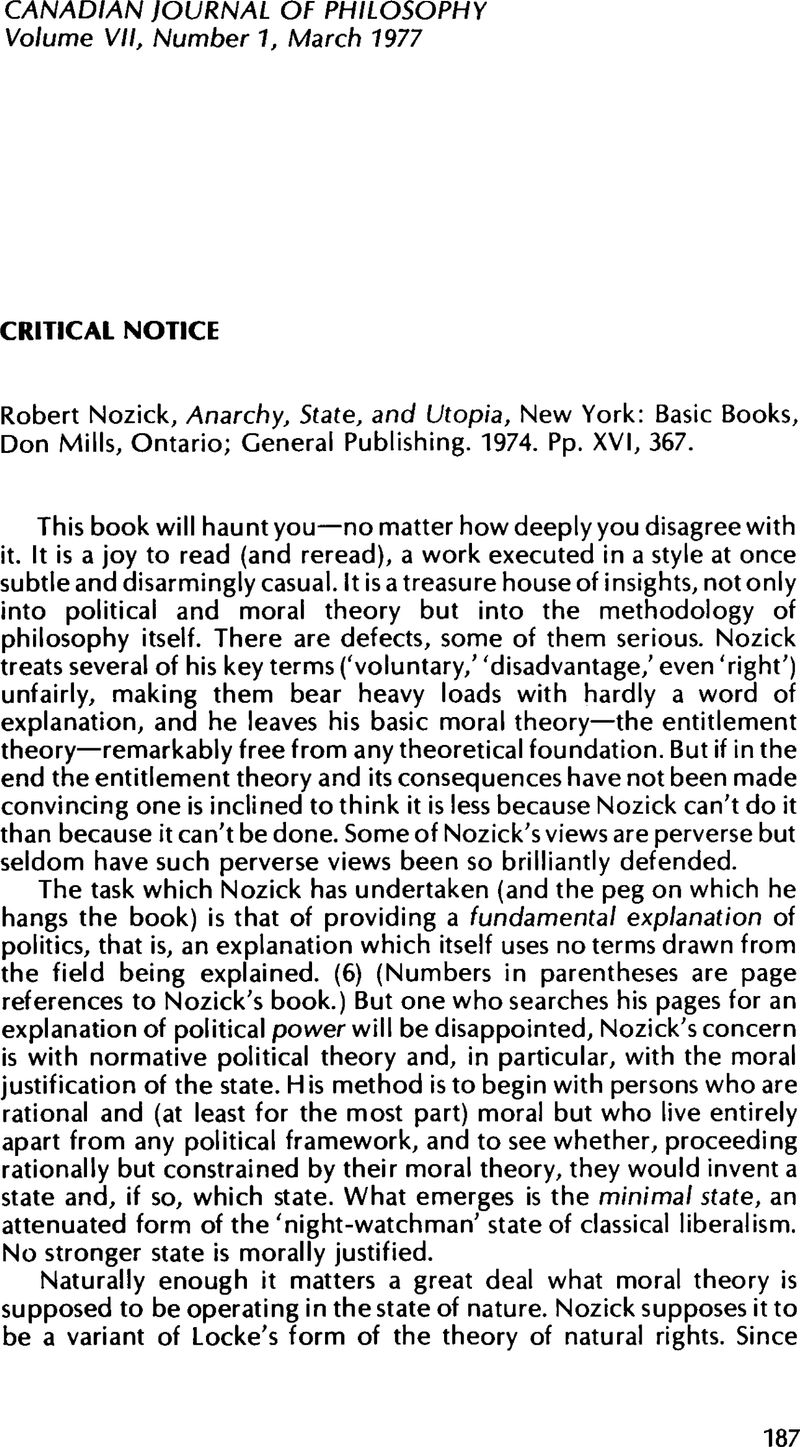Article contents
Robert Nozick Anarchy, State, and Utopia, New York: Basic Books, Don Mills, Ontario; General Publishing. 1974. Pp. XVI, 367.
Review products
Published online by Cambridge University Press: 01 July 1976
Abstract

- Type
- Critical Notice
- Information
- Copyright
- Copyright © The Authors 1977
References
1 Though Nozick at one point suggests that there may be rights which I have but may exercise only under certain conditions. cf. 106-107.
2 According to Nozick to compensate someone is not to make him as well off as he would have been had the activity compensated for been allowed. This is so in part because “someone is not disadvantaged relative to the normal situation by having his most profitable alternative forbidden to him.” (82) This suggests that the normal situation referred to is one's own (perhaps something like the average expected utility of one's reasonable options). But in his discussion of preventive restraint Nozick indicates that “to be disadvantaged means to be hampered as compared with others, with regard to certain activities.” (144n, italics mine) This suggests that a person might be disadvantaged by being denied his most profitable alternative if none of his others were as good as those chosen by other people. (It also requires full interpersonal comparison of utilities, an assumption not needed anywhere else in Nozick's theory.) Which is it? How is either measured?
3 See Scheffler, Samuel “Natural Rights, Equality and the Minimal State“ Canadian Journal of Philosophyvol VI, No 1, March 1976, pages 59-76.Google Scholar
4 It is very interesting that Nozick's account of justice among persons is very like Rawls’ account of justice among societies. (Nozick, of course, has no separate account of trans-national justice.) But Nozick's view does not support a principle of non-intervention in the affairs of other societies, Rawls’ view apparently does. (See Rawls’ A Theory of Justice, section 58).
5 For helpful discussion of Nozick's book I am endebted to many, especially to Allan Cobb, Peter Danielson, R. B. de Sousa, John Martin, Lorraine Normore and Lois Pineau.
- 1
- Cited by


